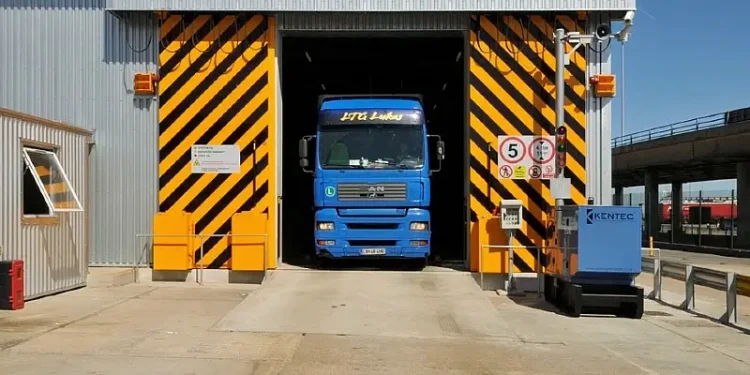The UK government has released an inspection report detailing significant reductions in clandestine entrants at northern France ports, emphasizing the need for continued investment in border security.
This development impacts national security and immigration policies, affecting public safety and business operations across the UK.
Significant Reductions in Clandestine Entrants
The recent inspection report highlights a dramatic decrease in detected clandestine entrants at key ports such as Calais, Coquelles, and Dunkerque.
From over 56,000 detected entrants in 2016 to approximately 5,000 by 2024, this reduction underscores the effectiveness of enhanced border control measures.
The UK government’s strategic investments in fencing and detection technology have played a crucial role in achieving these results.
Investment in Security Measures
To maintain effective border control, the UK has invested heavily in advanced security measures. These include state-of-the-art fencing and cutting-edge detection technologies designed to prevent illegal entry into the country.
Such investments are vital for ensuring national security and facilitating smoother operations for businesses involved in international trade.
Challenges Ahead
- Implementing an effective penalty scheme for clandestine entrants remains challenging
- Continuous improvements needed in staff training and technology deployment
- Collaboration with French authorities is essential for sustained success
- Monitoring displacement effects from port security to small boat crossings is crucial
The Role of International Collaboration
The report emphasizes the importance of collaboration with French authorities and security contractors to maintain robust border controls.
This international partnership is critical not only for deterring illegal entry but also for setting a precedent that could influence other countries facing similar challenges.
The Report
Recommendations
-
Enhanced Surveillance: Install an integrated Automatic Number Plate Recognition (ANPR) system linking Calais, Coquelles, and Dunkerque.
-
Industry Engagement: Develop and publish an “engagement plan” for industry stakeholders to promote ownership and responsibility.
-
Intelligence-Led Decision Making: Provide improved analyses, assessments, and intelligence products to inform resource allocation, investments, and operational deployments.
-
Flexible Frontline Operations: Offer training to Border Force officers to enable flexible deployment and response.
Additional Reading
The Takeaway
The UK’s commitment to enhancing border security through technological advancements and international cooperation continues to shape its immigration policies.
As challenges evolve, maintaining effective controls while addressing humanitarian concerns will be pivotal. Ongoing investment will ensure that these efforts remain adaptive and responsive to emerging threats.
Discover more of Todays Top Breaking News Stories!
Sources: UK Government, BBC News, Independent Chief Inspector of Borders and Immigration, and The Guardian.
Ivan Alexander Golden, Founder of THX News™, an independent news organization dedicated to providing insightful analysis on current events, prepared this article.








